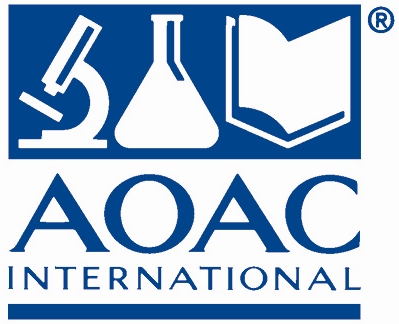 AHPA President Michael McGuffin and Chief Science Officer Holly Johnson, Ph.D. presented at the AOAC INTERNATIONAL 133rd Annual Meeting and Exposition to help the organization further develop analytical methods for botanicals used in herbal supplements.
AHPA President Michael McGuffin and Chief Science Officer Holly Johnson, Ph.D. presented at the AOAC INTERNATIONAL 133rd Annual Meeting and Exposition to help the organization further develop analytical methods for botanicals used in herbal supplements.
McGuffin reviewed significant dates in the evolution of analytical testing for herbal supplements, beginning with October, 25, 1994 when the Dietary Supplement Health and Education Act (DSHEA) was signed into law, providing authority for the Food and Drug Administration (FDA) to create good manufacturing practice (cGMP) requirements specific to dietary supplement products.
Under these cGMPs, companies are required to “Conduct at least one appropriate test or examination to verify the identity of any component that is a dietary ingredient” (which includes all botanical ingredients). Manufacturers are also required to “ensure that the tests and examinations … [used] … are appropriate, scientifically valid methods.”
"As of June 2007 we have had a cGMP rule in place that requires absolute certainty in identifying the ingredients in dietary supplements, through the use of scientifically valid tests or examinations," McGuffin said. Compliance with the rule was mandatory as of June 2010 for even the smallest manufacturers, he added.
McGuffin highlighted how far the industry has progressed since these requirements were enacted and also noted that there is still work to be done to ensure companies have all the tools needed to effectively and efficiently identify botanical ingredients used in dietary supplement products. He also suggested that it might be useful to consider shifting the target to provide tools that meet the regulatory “scientifically valid” standard.
 Johnson serves as Chair of one of the AOAC Cannabis Analytical Science Program (CASP) working groups, which is creating standards for measuring cannabinoids in hemp and consumables. CASP members approved three Standard Method Performance Requirements (SMPRs) at the meeting, including standards addressing solvent residues and aspergillus in cannabis inflorescence, and quantitation of cannabinoids in plant materials of hemp.
Johnson serves as Chair of one of the AOAC Cannabis Analytical Science Program (CASP) working groups, which is creating standards for measuring cannabinoids in hemp and consumables. CASP members approved three Standard Method Performance Requirements (SMPRs) at the meeting, including standards addressing solvent residues and aspergillus in cannabis inflorescence, and quantitation of cannabinoids in plant materials of hemp.
The CASP working group is now working to develop an SMPR for moisture determination.
"FDA has been lax in its cGMP enforcement of CBD products, but I think there is a reasonable assumption that many companies in this emerging marketplace will need help to learn how to use scientifically valid methods to ensure the identity and quality of their products," McGuffin said.
Johnson also participated in several collaborative sessions with the National Institutes of Health Office of Dietary Supplements (NIH ODS) and the National Institute of Standards and Technology (NIST) to address reference materials and methods for authentication, and characterization of botanical materials.
AOAC INTERNATIONAL brings together government, industry, and academia to establish standard methods of analysis that ensure the safety and integrity of foods and other products that impact public health around the world.